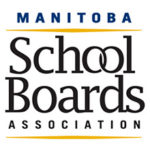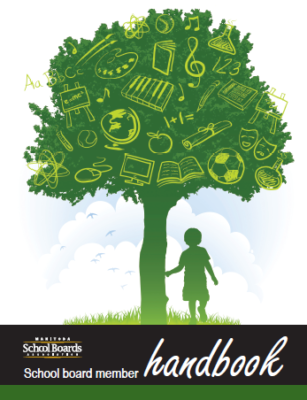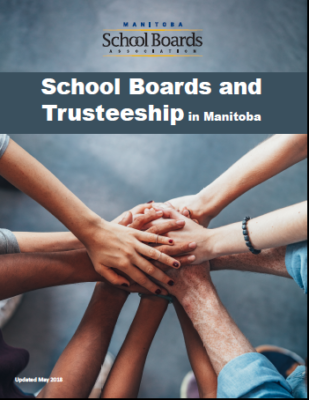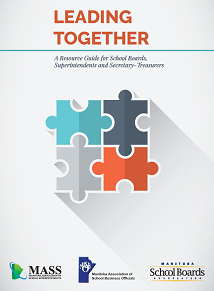The School Board
The primary role of a school board is to govern the schools under its jurisdiction in accordance with all legal requirements, while at the same time reflecting community beliefs and values. The major legal obligations of school boards are described in provincial laws such as The Public Schools Act and The Education Administration Act. School boards are also bound by federal and provincial legislation in areas such as human rights and privacy protection.
Community beliefs and values are reflected in policy that school boards develop. Policy “customizes” local schools within a common legal framework. Policy touches on many aspects of school operations. It may expand upon provincial graduation requirements, provide bus transportation to students other than those for whom that service is legally required, or offer locally developed courses or programs. Within a school division, school board policy has the weight of law.
School Boards Link Communities. A school board is made up of office workers, farmers, business owners, homemakers, doctors, students, and retirees. In short, a school board is a cross-section of the community it serves.
Because school trustees are not usually professional educators, school boards employ experts to assist them as part of a management team. Two key positions are the superintendent and the secretary-treasurer. The superintendent is a professional educator, while the secretary-treasurer is a school division’s financial officer. The school board, superintendent, and secretary-treasurer work together closely to ensure that a community’s schools are managed in a educationally sound, fiscally responsible and responsive manner.
Becoming a School Trustee
 School board elections are a great opportunity to get involved in public education – by voting or running as a candidate for school trustee. School board elections are held every four years, in conjunction with municipal elections, on the fourth Wednesday in October. The most recent election was held on October 24, 2018. View the HSD Elections page.
School board elections are a great opportunity to get involved in public education – by voting or running as a candidate for school trustee. School board elections are held every four years, in conjunction with municipal elections, on the fourth Wednesday in October. The most recent election was held on October 24, 2018. View the HSD Elections page.
In order to run for school trustee, a candidate must be a Canadian citizen who is at least 18 years old and an actual resident of the school division or district in which he or she is running. The following individuals are disqualified from serving as school trustee: a Member of the Legislative Assembly or the Senate or House of Commons of Canada, a member of the council of a municipality, or a pupil in regular attendance at a school within the same school division or district. Employees may serve as trustee in the division or district where they work, but they are required to take a leave of absence to do so.
Manitoba School Boards Association
 The Manitoba School Boards Association is a voluntary organization of public school boards in Manitoba. The mission of the Manitoba School Boards Association is to enhance the work of locally elected school boards through leadership, advocacy and service, and to champion the cause of public education for all students in Manitoba.
The Manitoba School Boards Association is a voluntary organization of public school boards in Manitoba. The mission of the Manitoba School Boards Association is to enhance the work of locally elected school boards through leadership, advocacy and service, and to champion the cause of public education for all students in Manitoba.
Visit https://www.mbschoolboards.ca/ to learn more.



